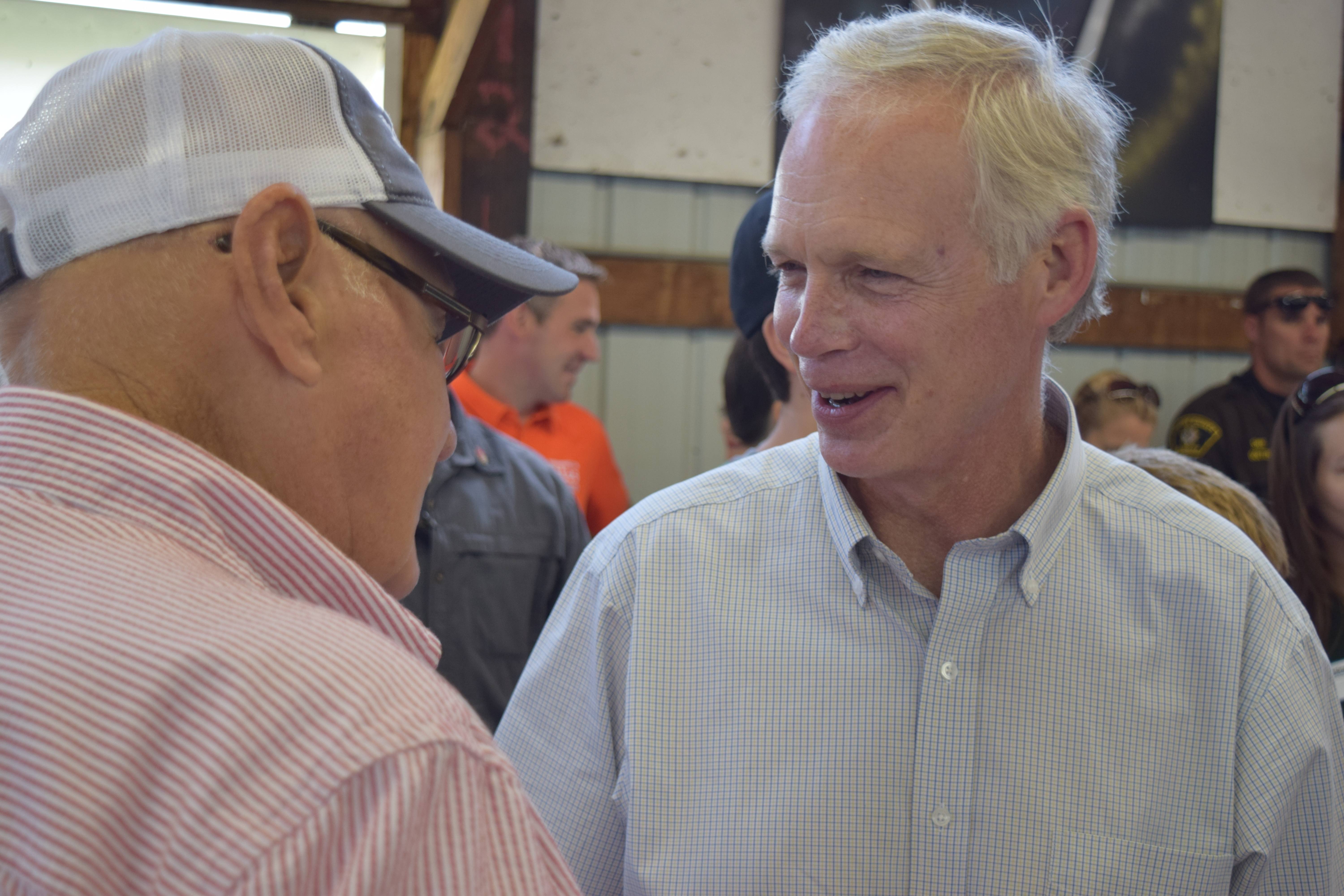
From the Milwaukee Journal Sentinel:
More than a year after his wife Trickett Wendler died from amyotrophic lateral sclerosis (ALS), he is giving voice to a congressional bill in her name.
The Trickett Wendler Right to Try Act, authored by Republican U.S. Sen. Ron Johnson, would allow terminally ill patients to receive experimental drugs — which have not been approved by the Food and Drug Administration — and where no alternative exists. There is a companion bill in the House.
With 40 Republicans and two Democrats co-sponsoring the legislation, Johnson plans to try to get the measure passed by unanimous consent, perhaps as early as Wednesday. The parliamentary maneuver is unlikely to succeed, since a single senator can block the request. But the issue probably won’t fade away.
“I want to create a sense of urgency around this,” said Wendler, who lives in Pewaukee with the couple’s three children. “The bill was introduced in May and here we are in September and we’re talking about procedural things. I’m a big boy. I understand how the process is drawn out. I would like the conversation to take place much, much sooner.”
Thirty-one states have passed right-to-try laws based on model legislation created by the Goldwater Institute, a libertarian think tank. Republicans in the Wisconsin Assembly have a goal to pass such a bill in the upcoming session.
Supporters say such legislation enables those with terminal illnesses to access experimental drugs and new treatments early in the development pipeline. Eligible medications have to pass phase one of clinical trials.
“Everyone is always uncomfortable with change,” said Matt Bellina, 32, a U.S. Navy veteran from Pennsylvania who has ALS and testified last week on behalf of Johnson’s bill. “I think over time when we look back on this we’ll that. there is no negative. You’re talking about people dying from some pretty nasty things that have no hope.”
Critics say the legislation offers false hope, since the laws don’t require a company to grant a patient’s request. They say patients can gain access to experimental drugs through the U.S. Food and Drug Administration’s access of expanded policy.
Allison Bateman-House, a bioethicist and public health researcher at New York University Langone Medical Center, said in an interview that right-to-try laws are misguided and deceptive.
“The present system, which is expanded access through the FDA, actually gets people access to drugs,” she said. “There is no confirmed instance of anyone getting a drug through right to try. On the face of it, one policy works, one policy doesn’t.”
Johnson said his measure is a federal counterpart to the state right-to-try laws. His legislation would prohibit the federal government from taking action to prevent patient access to experimental medications when several conditions are met.
Johnson introduced his bill in May and recently sent out a letter to other senators seeking their support. If he fails to get the measure passed this week, Johnson said he would seek to attach the legislation to another bill after the election.
“This isn’t a right to cure. This isn’t a right to access,” Johnson said. “It’s just giving people the freedom, if they can access, if they can afford it. It’s not forcing a manufacturer to provide it, to provide it at cost or free. It’s just providing that right to try.”
Johnson added: “This is not an anti-FDA bill. The FDA plays a vital role in terms of safety and efficacy.”
Johnson’s said his interest in the issue blossomed in 2014. He met with representatives of the Goldwater Institute, who were beginning their right-to-try push in the states. Johnson said advocates of right to try mapped out a two-step process, to show support in the states before bringing federal legislation.
Around a week later, Johnson said, he met with a group advocating for ALS patients, including Trickett Wendler. He told her he supported a federal law.
“Literally, tears started streaming down her cheeks,” he said. “There’s a moment you realize, this is really important for a person. This isn’t some theoretical good government policy thing. This is something important, I’m going to pursue it.”
